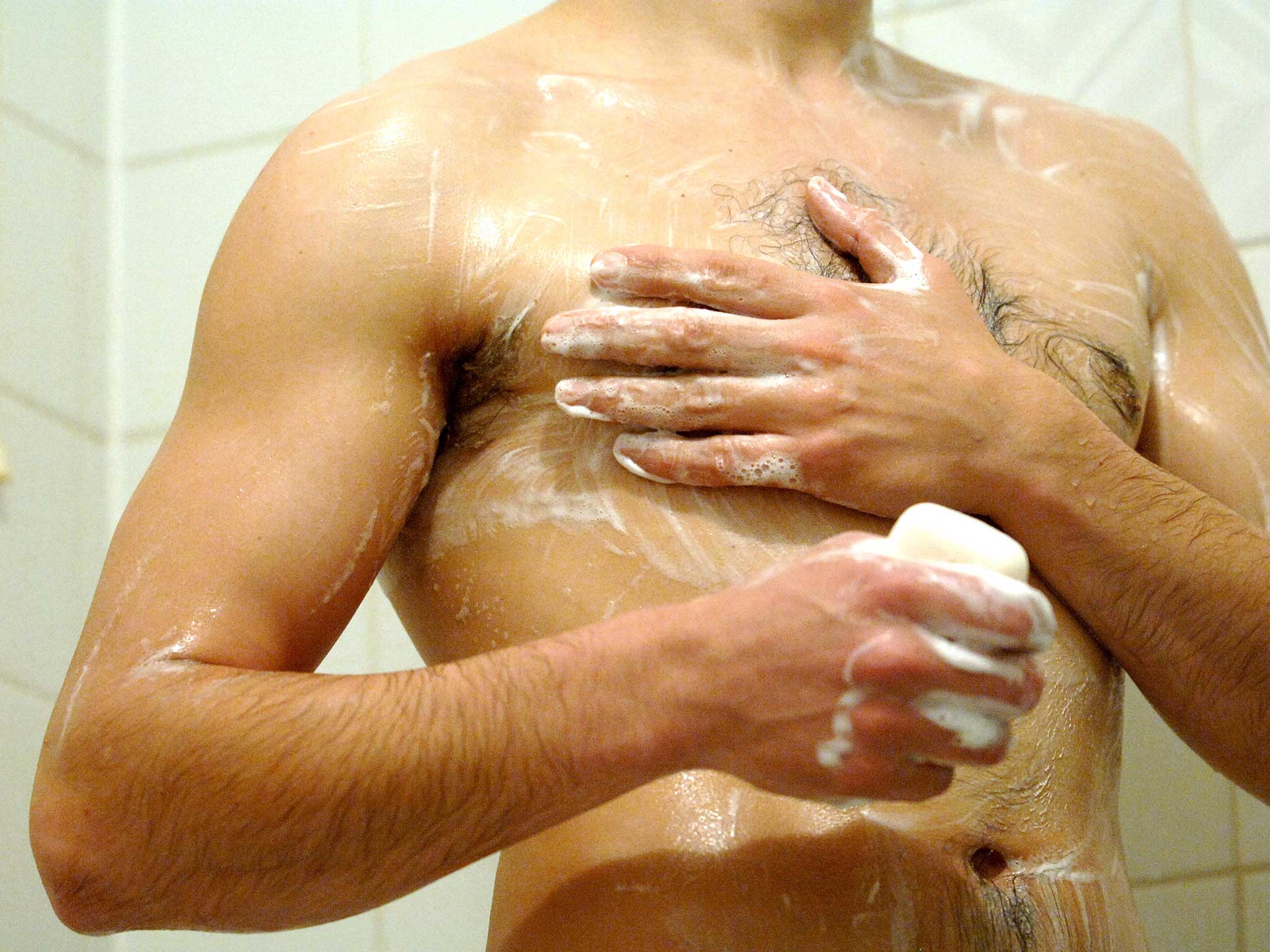Expert warns using soap in shower may actually be bad for us in long term
Anti-bacterial soap may prevent the body from being able to distinguish 'good' bacteria from 'bad'

Your support helps us to tell the story
From reproductive rights to climate change to Big Tech, The Independent is on the ground when the story is developing. Whether it's investigating the financials of Elon Musk's pro-Trump PAC or producing our latest documentary, 'The A Word', which shines a light on the American women fighting for reproductive rights, we know how important it is to parse out the facts from the messaging.
At such a critical moment in US history, we need reporters on the ground. Your donation allows us to keep sending journalists to speak to both sides of the story.
The Independent is trusted by Americans across the entire political spectrum. And unlike many other quality news outlets, we choose not to lock Americans out of our reporting and analysis with paywalls. We believe quality journalism should be available to everyone, paid for by those who can afford it.
Your support makes all the difference.Regularly showering using soap may be doing your body more harm than good, a US doctor has suggested.
Antibacterial soap, often containing harsh chemicals, removes the dirt and grime your body accumulates over the day but can prevent your body from recognises “good” bacteria.
Robynne Chutkan, founder of the Digestive Center for Women in Chevy Chase, Maryland, claimed by “scouring ourselves in the shower every day, we are actually stripping our skin of bacteria that keep us acne and eczema free.”
Dr Chutkan claims the human body only needs a “rinse” most days – even after a sweaty workout.
“Dirt doesn’t cause disease - but repeatedly killing off the good bacteria on our skin may actually harm our immunity.”
During cold and flu season people should be more cautious, regularly washing their hands with soap and warm water, but Dr Chutkan stressed hand sanitizers were not worthwhile.
“Unless you’ve been hanging out on an Ebola ward, the vast majority of microbes on your skin and hands are not virulent germs that cause serious infection; they’re harmless bacteria that won’t hurt you,” she told Health News.
Last year, the World Health Organisation (WHO) released a report suggesting untreatable bacterial infections were emerging globally due to the widespread use of anti-bacterial gels.
The report suggested a number of common viruses had mutated into drug-resistant strains, making them much harder to control or eradicate.
Join our commenting forum
Join thought-provoking conversations, follow other Independent readers and see their replies
Comments